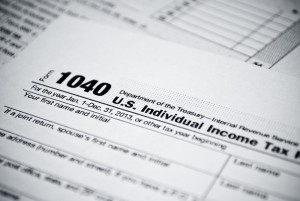When it comes to undisclosed foreign financial accounts and assets, the time to make required disclosures is quickly running out. U.S. taxpayers holding or having signature authority over certain foreign accounts are obligated to make annual disclosures of these accounts when certain thresholds are exceeded. Some taxpayers have been slow to adjust to the new banking regime ushered in by the Bank Secrecy Act’s FBAR requirement and taxpayer’s FATCA obligations. Unfortunately, this reluctance to adapt to the new disclosure regime subjects the taxpayer to an unacceptable level of risk.
FBAR and FATCA penalties are often harsh. Even an inadvertent violation of FBAR can result in a penalty of up to $10,000. Willful violations can, theoretically, exceed the original value of the account. FATCA penalties can also be significant. These penalties are further enhanced when the taxpayer’s bank or financial institution is added to the Department of Justice’s list of foreign financial facilitators.

65th and 66th Banks Added to Foreign Facilitator List
Prosecutors claimed that Standard Charter Bank had allowed a number of illegal practices in violation of U.S. law to occur in an attempt to help clients avoid or evade taxes. U.S. prosecutors claim that SCB knew or should have known that it was providing assistance to taxpayer’s in their efforts to defeat tax by:
- Providing statements that only contained an account number in an attempt to conceal the identity of the true account holder.
- Holding mail and other documents relating to the account.
- Accepted and submitted false W-8BEN forms to conceal the true identity of U.S.-based account holders.
SCB reached a resolution regarding its cross-border banking activities through the DOJ’s Swiss Bank program. As part of the agreement SCB agreed to make a full and complete disclosure of all of its cross-border banking activities., The bank must provide information regarding accounts linked to U.S. based individuals and entities. Furthermore, the institution is required to reveal all financial institutions that made secret transfers or accepted secret transfers. The bank also agreed to comply+ with any future tax treaty information requests as ratified between the Swiss government and the United States.
Maerki Baumann is the 66th Bank added to the foreign facilitators list due to behaviors that apparently included:
- The bank opened, maintained, and serviced accounts for U.S. taxpayers when it knew or should have known that the individual had not made an accurate disclosure about his or her nationality.
- The bank offered a hold mail service
- The bank allowed U.S. taxpayers to open and hold accounts in the name of foreign corporations, foreign trusts, and other foreign entities.
- The bank structured transactions just below $10,000 to avoid cash reporting laws.
- The bank facilitated the carrying of cash across bordered.
- Relationship managers arranged to send coded communications to clients. In one instance a relationship manager said he would send a “Greetings from [Relationship Manager]” card to indicate that there was an urgent issue.
- The bank engaged in the practice of allowing U.S. taxpayers to transfer funds to a new account ostensibly held by a life insurance company.
- Processed transactions for precious metals.
- Allowed an accountholder to withdraw one million francs after the individual refused to declare the funds in the U.S.
- Provided clients with debit or cash cards in lieu or other payment.
If your foreign financial institution has been added to the foreign facilitators list due to securing a non-prosecution agreement through the Swiss Bank Program, you will face higher penalties should you address the matter through OVDP. While most taxpayers will pay an offshore penalty of 27.5%, taxpayers who hold accounts with banks of the facilitators list will pay a 50% penalty. Taxpayers can avoid the increased penalty if they enter into the program before the bank has been identified and added to the list. However, even where the 50% penalty applies, paying the increased penalty may be well worth the money if there is a risk of criminal prosecution due to the undisclosed foreign accounts.

Rely on our Experienced Offshore Account Disclosure Guidance
If you have questions or concerns about undeclared foreign financial accounts, Robert Hoffman of the Hoffman Law Offices can provide experienced and dedicated legal guidance. He assesses all tax and offshore disclosure situations independently and can provide on-point legal guidance that is likely to result in a favorable result for the client. To schedule a confidential, no-cost consultation call 800-897-3915 today or contact our firm online.


